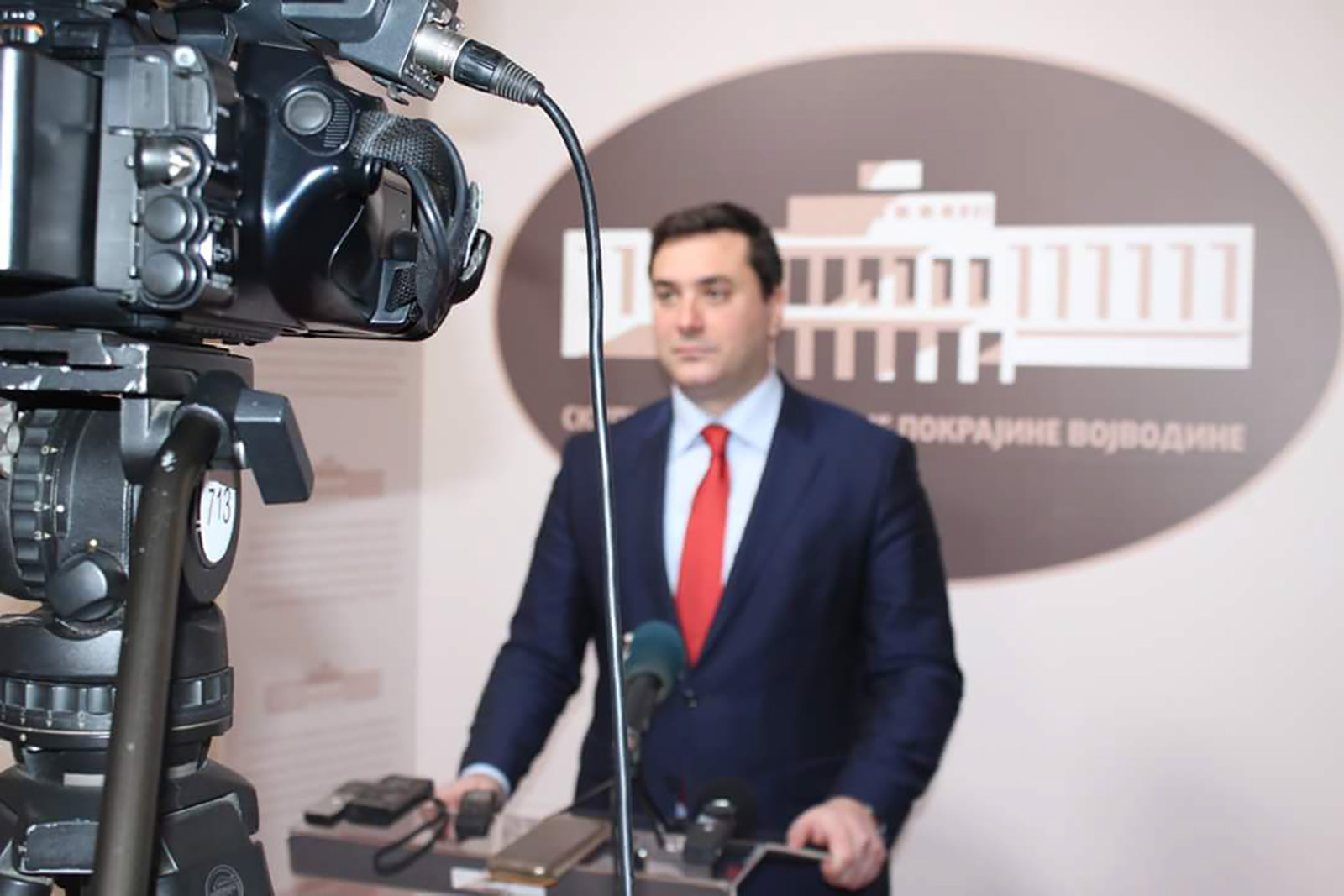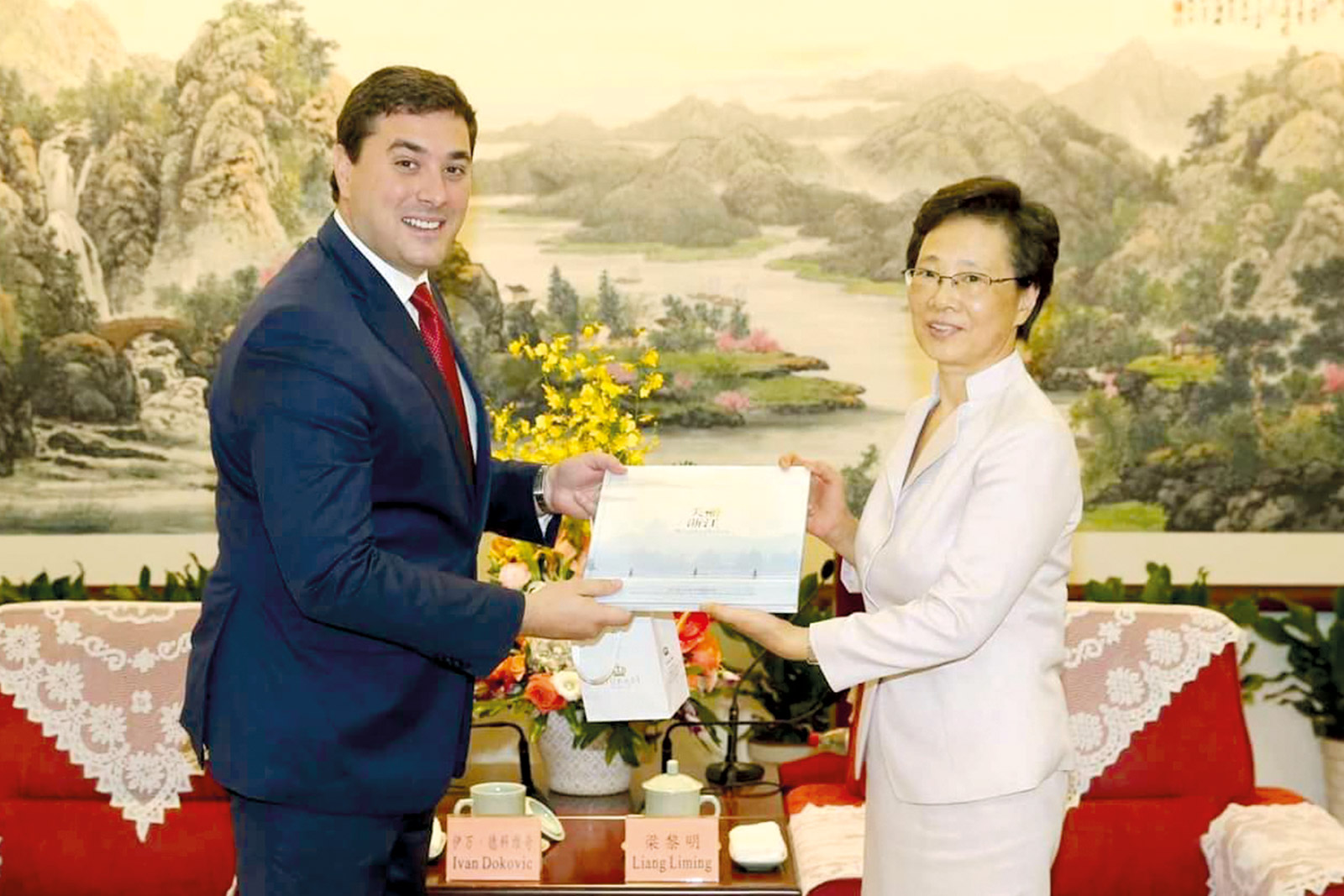Interview – Ivan Đoković
Our collocutor, Ivan Đoković, the Vice -President of the Provincial Government and the Provincial Secretary for Economy and Tourism set himself a goal to remodel Vojvodina into one of the leading European tourism regions. He is working on strategic documents, networking, regional and international cooperation, the creation of the tourist product that will bring our neighbors, as well as tourists from far-off and prosperous China.
You have been working on the long-term “Program of the Development of Tourism of AP of Vojvodina”.
– Yes, it’s a unique document, whose methodology and scope strategically regulate Vojvodina, and it relies greatly on the Strategy for the Development of the Tourism of the Republic of Serbia 2016-2025. Given that the Program has not existed so far, that’s surely one of the reasons why Vojvodina could not have formed itself as a tourism destination, but rather existed within the frameworks of the agricultural region, which it’s been globally recognized for. We approached the research itself within the framework of the drafting of the Program systemically, not only through economic indicators, but also through the multiplicative effects tourism has on economic development, the development of culture, education and related activities. On that occasion, late in November, the first interactive workshop was held with the representatives of the local self-governments, provincial and local tourism organizations that take part in the drafting of the Program. We have high expectations of these special-purpose meetings – feedback, data about tourism potentials, infrastructural resources, cultural-historical, gastronomical and any other form of heritage that can economically be modelled are important to us..
Which destinations have the biggest tourism potential?
– The concept we, especially restorers, have been striving to in Vojvodina, which should be modelled into a product and branded, is the “one day longer” concept. The destinations for which investments are planned are those defined by the Republic’s Strategy, the four of them: Subotica with Lake Palić and the Tisa River Basin, the Upper Danube Basin, the City of Novi Sad with Sremski Karlovci and Mount Fruška gora, as well as the City of Vršac with Deliblatska Peščara, the Hill of Vršac and the Lakes of Bela Crkva. The Secretariat, is also oriented towards stimulating short urban holidays, MICE, health and spa tourism, religious, gastro-, wine, cycling and nautical tourism. We also encourage the quality of the events of an international character. Finally, hunting and fishing tourism are a significant brand and resource of this area that should allow us to gain more benefits from it. To sum up, with sustainable strategic directions, a modelled Program, with the funds from international pre-accession funds and cross-border cooperation programs, with the support of the Republic’s, Provincial and local budgets, it’s possible to put tourism on a pedestal as one of the leading economic branches. The rich cultural and historical heritage with its typical features and the languages of the 21 national communities in Vojvodina create the basis that becomes competitive if adequately modelled.
Publically, you frequently highlight the fact that in tourism you recognize a unique model for the development of local communities…
– Branding the resources that we’ve got has the key role in the promotion of the tourist offer, changing Vojvodina’s general reputation on the global tourism scene. Given that funds are missing at all levels of the state administration, it’s necessary to establish a public-private partnership and utilize funds more actively. In tourism, we’ve recognized a new space to act in so as to create new material, as well as other values, which substantially contributes to the stabilization of the economy and the renewal of the “neglected” resources that Vojvodina abounds in. Although our funds are modest, in a synergy with relevant ministries we’re able to initiate the more significant solving of key issues.
It is evident that you work a lot on regional cooperation. What are the results you have obtained so far and what are your expectations?
– Regional cooperation is directed towards the surrounding countries: Croatia, Hungary, Romania, as well as Montenegro, and Bosnia and Herzegovina. We’ve been primarily oriented towards Hungary, with which we have already realized numerous cross-border projects with. Besides, the fact that the Hungarian national minority accounts for a great percentage in Vojvodina, conditioned the raising of the international relations to a significantly higher level. It’s exactly the tourism domain that has united and brought together the members of the mixed working group, namely Serbia, Hungary, and Slovakia, with the aim of creating a joint tourist product for both the European tourism market and far-off markets, such as China. It’s necessary to shape an efficient model of joining the forces of all those who may be interested, so such cooperation suggests the inclusion of Romania and Austria, as well as all other sovereignties which are considered to be an inseparable part of the joint tourism cluster.
I’d also like to highlight the unique experience gained on a recent study journey to Rovinj and Novigrad, where the representatives of the public and the private sectors within the field of tourism from the territory of Vojvodina met with the Northwestern Istria Cluster to exchange their experiences and mark a new beginning of tourism cooperation between our regions.
Where are we when tourists from China are concerned?
– We dynamically cooperate with Chinese provinces, especially with Guangdong, Zhejiang, Jiangsu and Shanghai. During this year’s official visit to our sisterly Guangdong Province and Guangzhou City, we determined that it’s possible to achieve good business, political and friendly relationships in numerous spheres, primarily in tourism. Things are going our way within the visa-free regime, followed by the recently established direct flights. Apart from the fact that Vojvodina is surrounded by vast European markets, healthy food, quality wines, geothermal springs and medicinal mud, culture and tradition, multi-ethnic and multi-confessional communities, are the important elements we can offer as tourist products to the inhabitants of prosperous Chinese provinces. This summer, I had the opportunity to visit Zhejiang Province, its cities Hangzhou, Ningbo and Lishui with Jinjun District, Jiangsu Province and Nantong City, and Shanghai as well. I convinced myself that the Chinese nation, as well as their provincial and state authorities are open for many forms of cooperation, the first steps being the twinning of the local self-governments, districts and provinces. The undergoing process of twinning of Vojvodina with the Province of Jiangsu, will most certainly open many doors to us.
You frequently point out that Vojvodina’s wines and cuisine can create new concepts in tourism…
– Apart from wines and wineries, the significant potential lies in gastronomy, but also in village tourism households. Wine is one of the attractions that should make tourists’ adventure and that of the connoisseurs of “the potion of gods” and gastronomy. Natural rarities and attractions, clean and preserved nature, organic food, cultural and religious institutions and a different, complex, multi-ethnic and multi-linguistic way of life of every person form Vojvodina – “a little European” – are its continuation. The intention of the Secretariat with me at the forefront is to support the events that influence the promotion of our characteristic gastronomy and the wine culture. The food in Vojvodina not only nourishes the stomach, but is also the food for the soul.
Novi Sad is preparing itself for two major international events. It is going to be the European Youth Capital in 2019, and the European Capital of Culture in 2021…
– The fact that the City of Novi Sad has been awarded these two prestigious titles is quite significant. It means that it is competitive to the other European candidates and contains all the qualities necessary to maintain its place in the race. Novi Sad is not only a university center, but it is also a city that takes much care about the development of tourism, being the city that has recorded significant progress in the last years. With its incentive measures, the Secretariat will continue to support the events and international conferences that may contribute to a greater recognizability of the city, such as the International Congress of Students of Tourism and Hotel Management (MEKST), which brought together an imposing number of experts, lecturers and participants from more than 20 countries worldwide this year, as well in the previous years. This and similar projects are aimed at the inevitable international networking of experts and the youth, which enables them to acquire knowledge and become familiar with all that Novi Sad offers as Vojvodina’s administrative center, and also as the university and tourism center of the region.
The Danube, the Tisa, the Sava… as well as the branching network of channels are a huge tourism resource. Have you got concrete plans when the development of nautical tourism is in question?
– Vojvodina would not be what it is today if the Great and the Small Canal of Bačka had not been built and eventually networked into the Danube-Tisa-Danube system of canals. The unique internal network of canals, as well as the areas of the special purpose of the rivers Danube and Tisa, the national park of Mount Fruška Gora, and the nature reserves, are our economic, tourist, and also traffic potentials. The rivers have a two-fold connection with tourism – as the motifs of moving and as traffic roads. The Danube with its canals and coastal zone offers possibilities of developing bathing-recreational, sport-recreational and sport-fishing tourism. On the internal canal network, the rivers Danube, Tisa, as well as Tamiš, and also on the Sava riverbank on the Vojvodina’s side, nautical and cruising tourism that is already existent should be developed to reach the level of economic sustainability.











Social Network